Traveling with a baby can be a daunting task for many parents, especially those who are doing it for the first time. Proper preparation and the right techniques can make the experience not only manageable but also enjoyable.
Managing Different Modes of Transportation
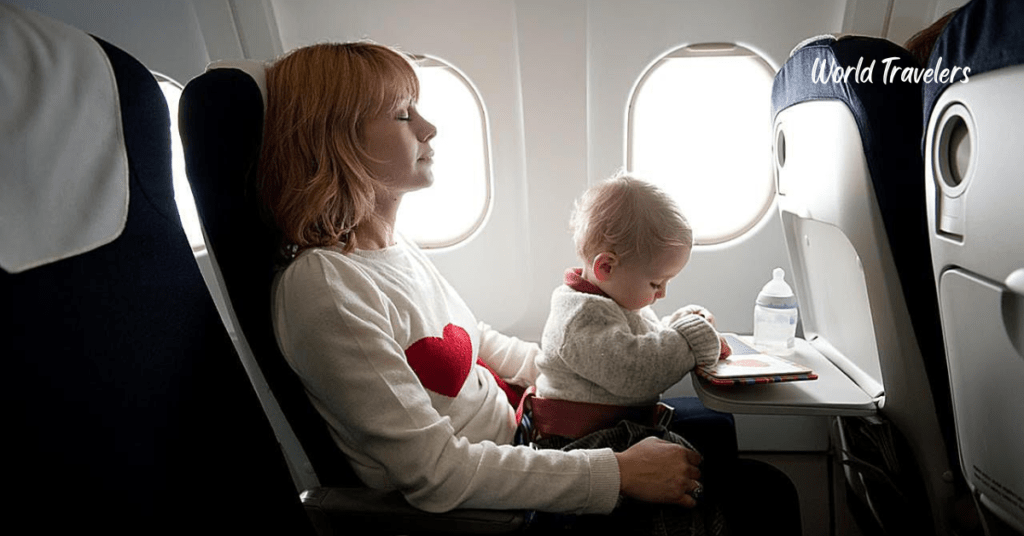
Traveling with a baby can be significantly affected by the mode of transportation you choose. Each mode presents unique challenges and requires specific preparations to ensure a smooth journey.
Traveling by car
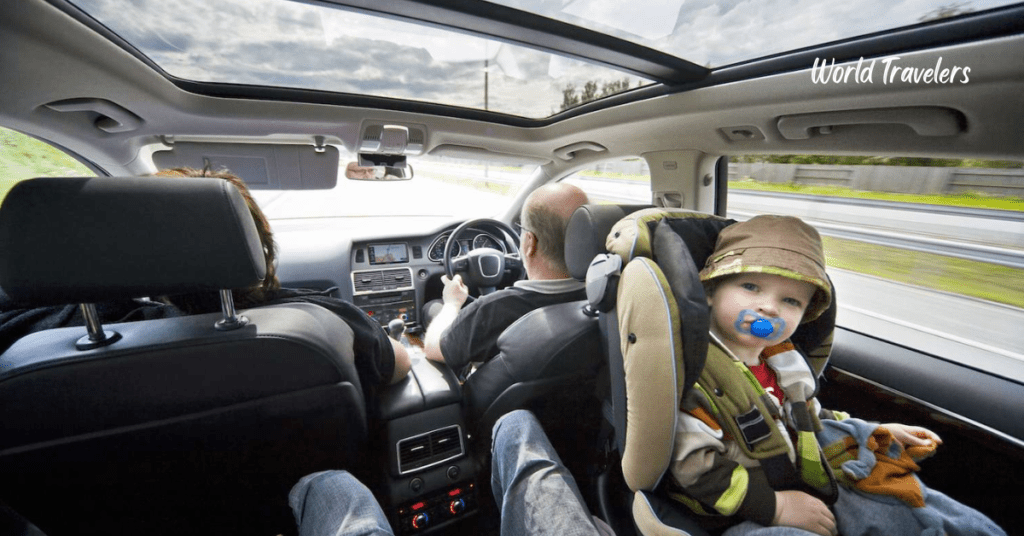
When traveling by car with a baby, ensuring car seat safety is paramount. Choose a rear-facing car seat suitable for your baby’s weight and height, install it securely using the LATCH system or seat belt, and place it in the back seat, ideally in the middle.
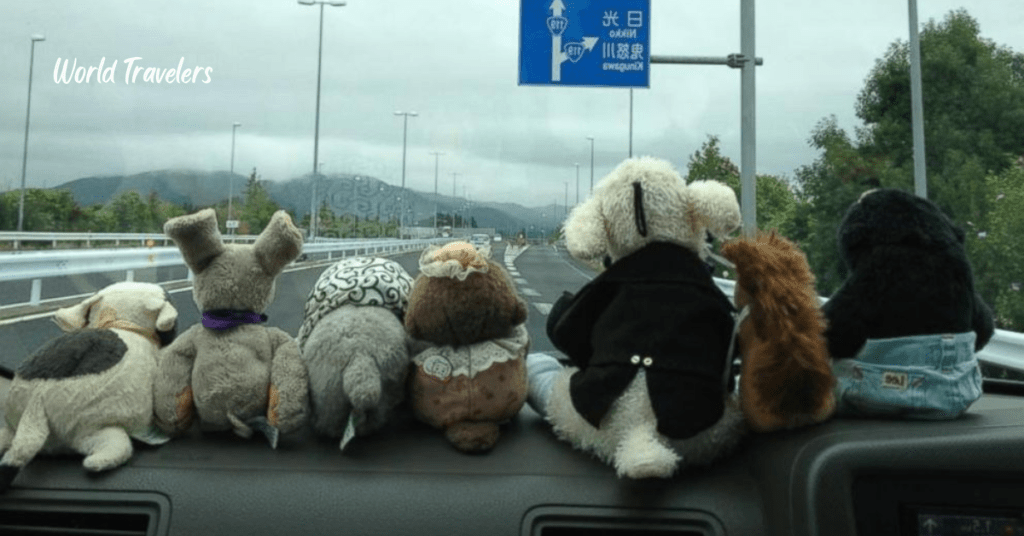
For comfort and entertainment, plan for regular breaks every two to three hours for feeding, diaper changes, and stretching. Maintain a comfortable temperature with climate control and sunshades, and bring soft toys, books, and soothing music or white noise.
Traveling by Plane
Flying with a baby requires careful planning to ensure a smooth experience. When booking, opt for direct flights to minimize transit time and consider seats with extra space, like bulkhead seats, or purchase a separate seat for your baby to use a car seat.
During the flight, feed your baby during takeoff and landing to equalize ear pressure, and be prepared for diaper changes with a portable pad and ample supplies. Keep your baby entertained with toys, books, and snacks, and dress them in layers to adjust to varying temperatures, bringing a blanket for added comfort.
Staying in Accommodations and Managing Daily Routines
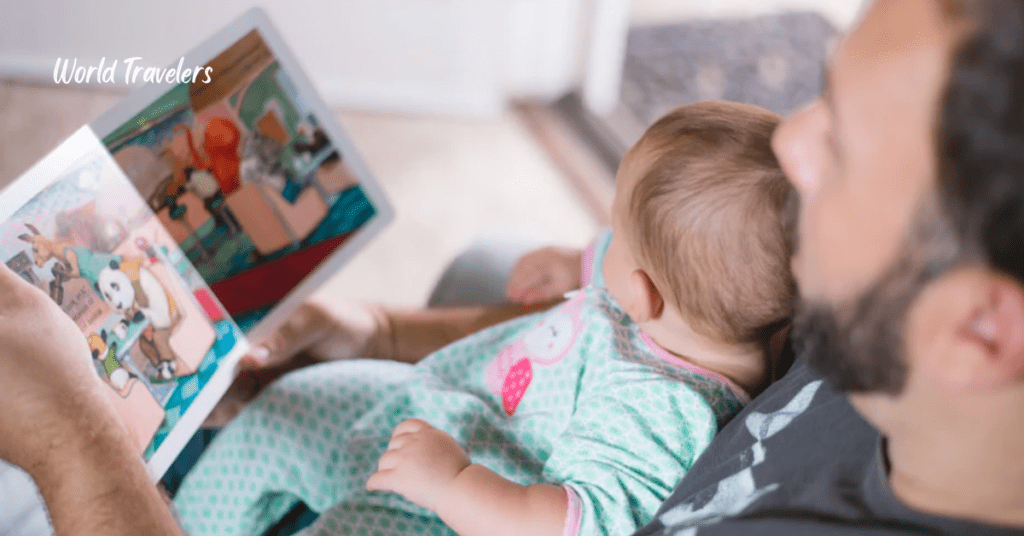
Traveling with a baby requires careful planning, especially when it comes to choosing and staying in accommodations. Ensuring that your baby’s daily routines are maintained as much as possible can significantly ease the stress of traveling.
Choosing Baby-Friendly Accommodations
Selecting baby-friendly accommodations is crucial for a smooth and comfortable experience. Opt for hotels with amenities like cribs and baby-proofed rooms, or choose vacation rentals from platforms like Airbnb that offer more space and kitchen facilities. Family resorts with childcare options can also be ideal.
Choose accommodations close to attractions to minimize travel time and ensure they provide essential baby gear such as cribs, strollers, or car seats. Having kitchen facilities is useful for preparing baby meals.
When setting up the room, select one with a separate sleeping area for your baby, request a room away from noisy areas, and ensure it is baby-proofed or bring along items like outlet covers and cabinet locks.
Packing for the Stay
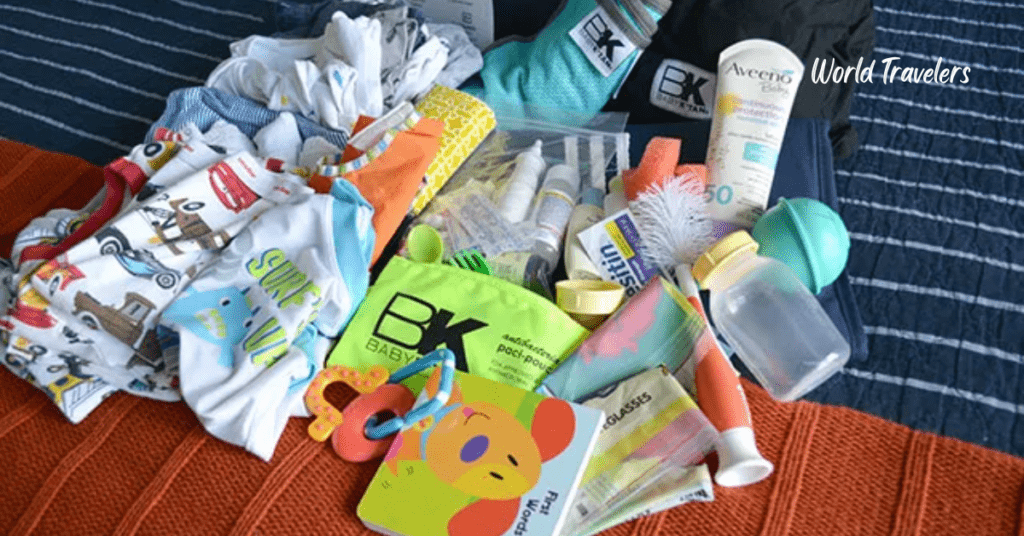
Packing efficiently for a stay with a baby is essential to ensure their comfort and maintain routines. Bring a portable crib or playpen if the accommodation doesn’t provide one, along with your baby’s usual sleep sack or swaddle and a white noise machine.
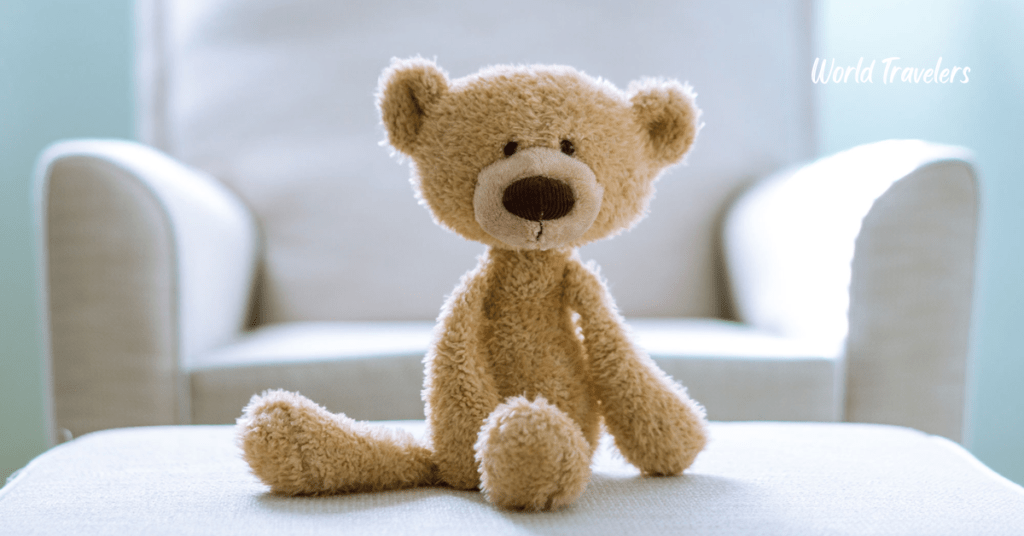
Bring baby food jars, snacks, and baby-friendly utensils. Include plenty of diapers, wipes, a portable changing pad, diaper rash cream, and disposable bags for soiled items. Pack season-appropriate clothing, comfort items like a favorite blanket or stuffed animal, and a small laundry bag for dirty clothes.
Health and Safety Tips for Traveling with a Baby
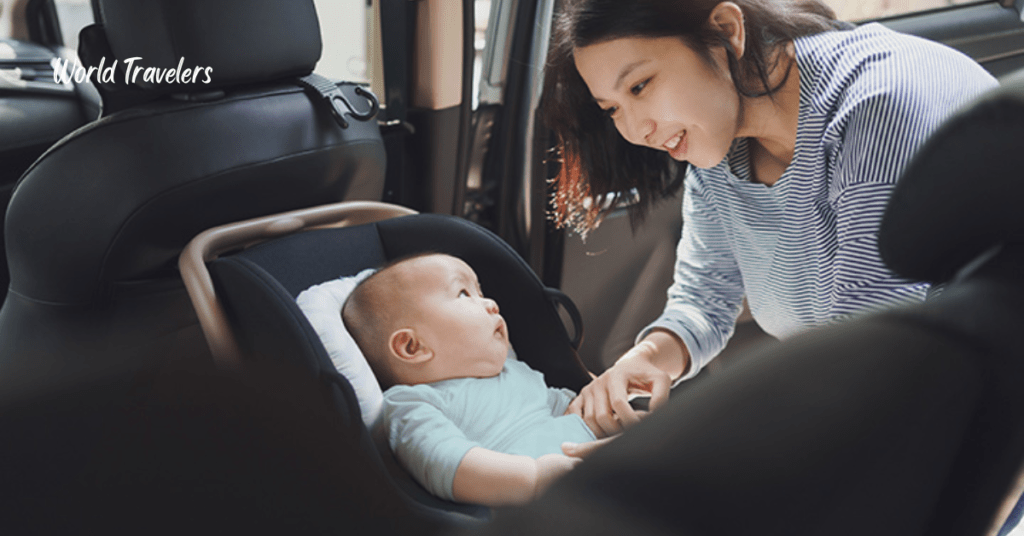
Ensuring the health and safety of your baby while traveling is of utmost importance. This part will provide detailed guidance on how to manage your baby’s health needs, keep them safe, and handle emergencies during your trip. By being well-prepared and informed, you can minimize risks and enjoy a worry-free journey.
Keeping Your Baby Healthy
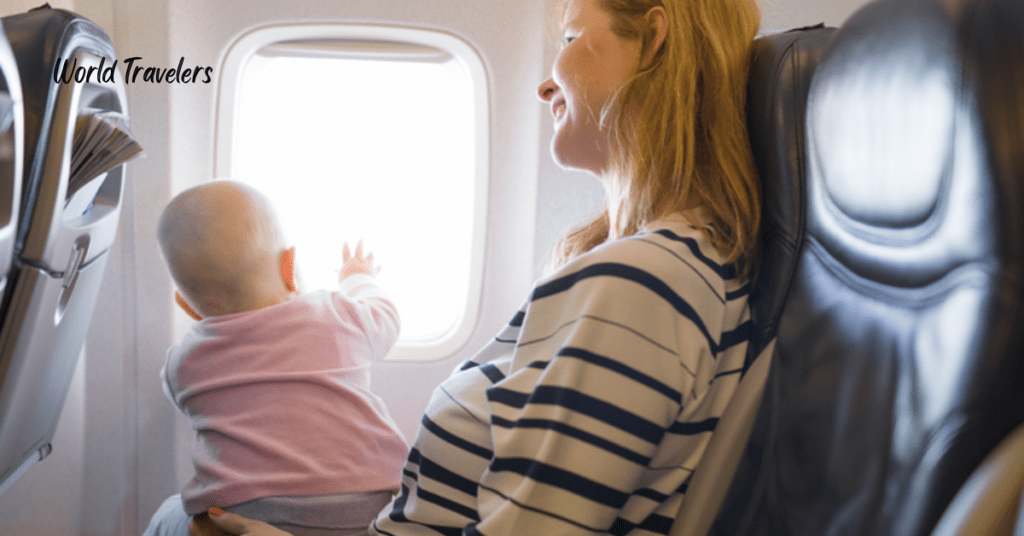
Maintaining your baby’s health while traveling involves preventive measures and preparation for potential health issues. Ensure vaccinations are up to date and schedule a health checkup before the trip. Practice good hand hygiene, avoid contact with sick individuals, and be cautious with food and water.
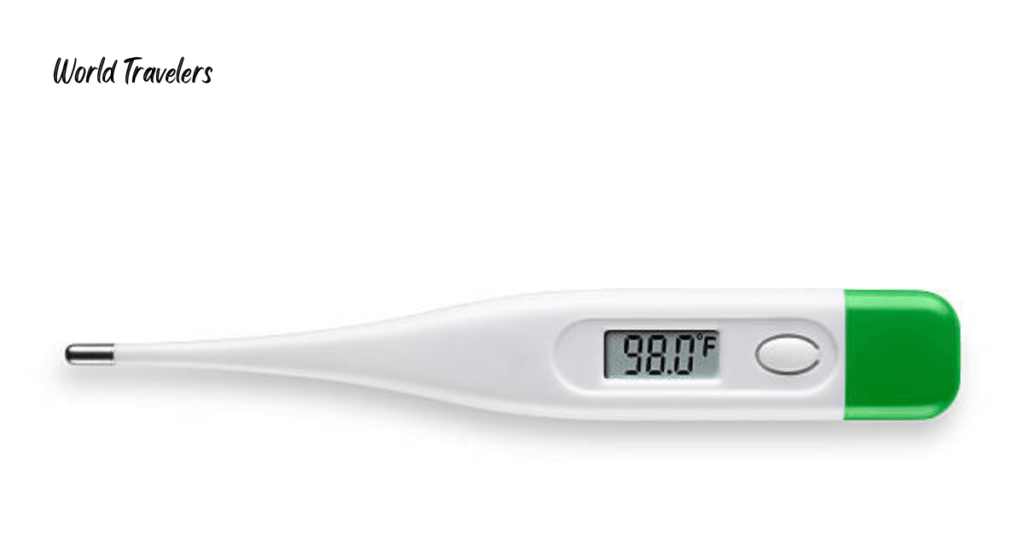
Pack a digital thermometer, infant acetaminophen or ibuprofen for fever, and oral rehydration solutions for diarrhea and dehydration. Protect your baby from the sun with sunscreen, protective clothing, shade, a wide-brimmed hat, and sunglasses.
Keeping Your Baby Safe
Ensuring your baby’s safety while traveling involves preventive measures and vigilance. Babyproof your hotel room by inspecting for hazards like exposed outlets and sharp corners, using outlet covers and corner guards if needed. Check that the crib meets safety standards with a snug mattress and no loose bedding or toys.
For car seat safety, install the seat correctly following manufacturer guidelines and keep your baby in a rear-facing position for optimal protection. Practice safe sleep by always placing your baby on their back on a firm sleep surface with a fitted sheet, avoiding soft bedding, pillows, and stuffed animals in the crib.
Managing Your Baby’s Sleep and Feeding Schedules
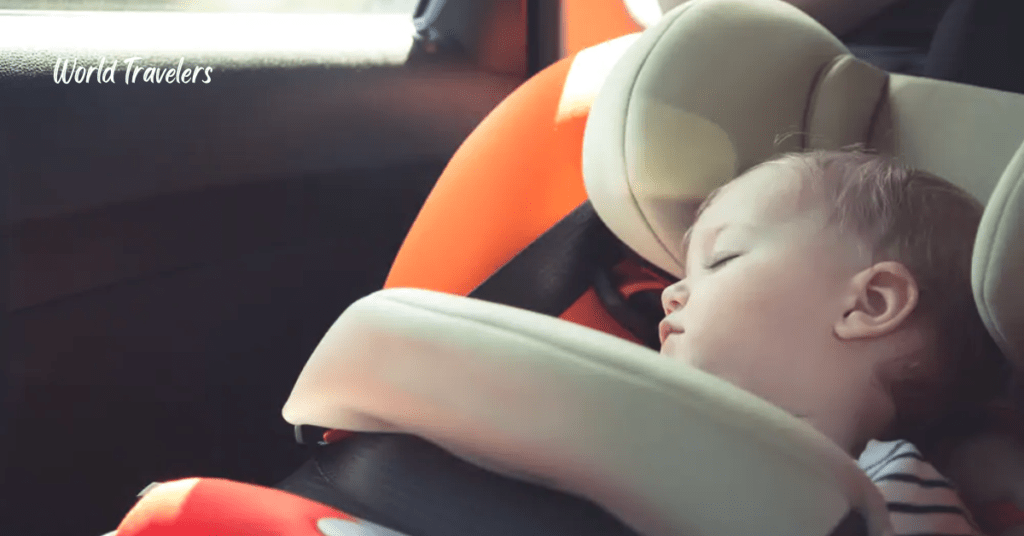
Maintaining your baby’s sleep and feeding schedules while traveling can be challenging but is essential for their comfort and well-being.
Maintaining Sleep Schedules
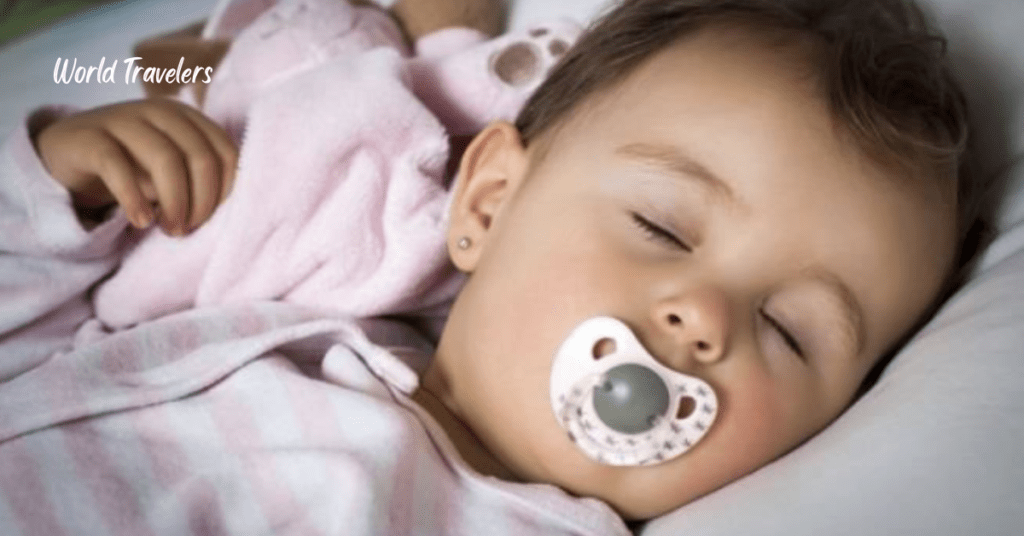
Maintaining consistent sleep schedules is crucial for your baby’s well-being, even while traveling. To minimize disruptions, gradually adjust your baby’s sleep schedule a few days before departure, shifting bedtime and nap times by 15-30 minutes towards the new time zone.
On the go, be flexible with nap times, use a baby carrier or stroller for naps, and switch to the local time immediately upon arrival. Create a dark, quiet sleep space using blackout curtains and a white noise machine. For dealing with jet lag, allow a gradual transition and maintain patience and consistency, offering comfort if your baby wakes up at odd hours.
Maintaining Feeding Schedules
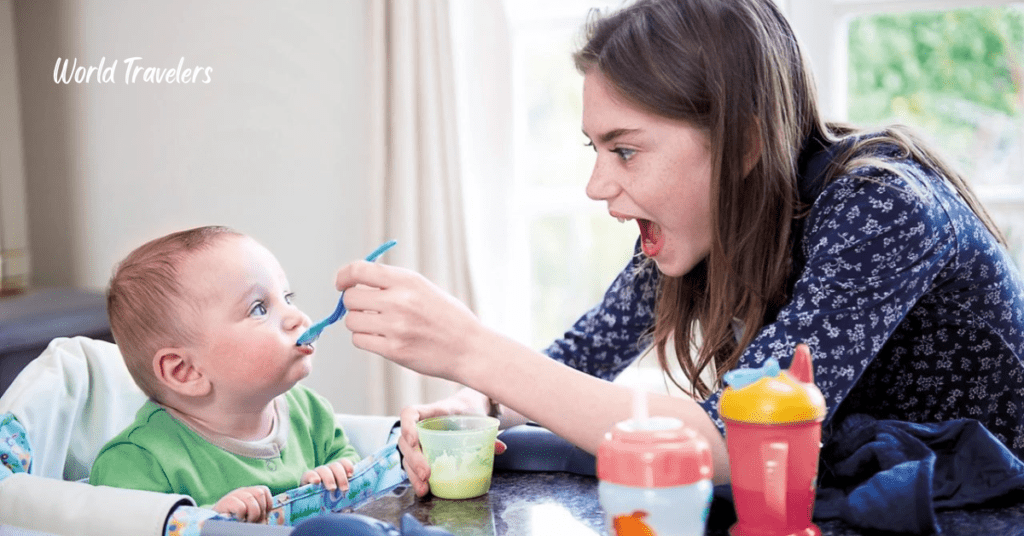
Maintaining feeding schedules is vital for your baby’s comfort and health while traveling. Plan ahead by scheduling meals around your travel itinerary and packing enough formula, breast milk, or baby food, plus extras. Practice flexibility with feeding times before the trip and ensure you have all necessary equipment, such as bottles, nipples, and a portable sterilizer.
During travel, breastfeeding is convenient and requires minimal equipment, while bottle feeding benefits from pre-measured formula and clean bottles. For solid foods, pack easy-to-serve options and snacks.
Conclusion & Recap
Traveling with a baby can be a rewarding experience that creates lasting memories. While it requires extra planning and effort, the joy of exploring new places with your little one makes it all worthwhile. Embrace the adventure, be prepared for the unexpected, and cherish the special moments along the way.
With careful planning and a flexible approach, you can navigate the challenges of traveling with a baby and enjoy a fulfilling and enriching experience.
FAQs
Can I use a baby carrier for my newborn while traveling?
Yes, you can use a baby carrier for your newborn while traveling, as it provides a secure and comfortable way to keep your baby close to you, offering hands-free convenience and ease of movement, but ensure it’s designed for newborns and offers adequate head and neck support.
Is it safe to travel by plane with an infant in a baby carrier?
Traveling by plane with an infant in a baby carrier is generally safe and can be very convenient, allowing you to navigate the airport and board the plane with ease, but you may need to take the baby out during takeoff and landing as per airline regulations.
How do I keep my baby comfortable in a stroller during travel?
To keep your baby comfortable in a stroller during travel, make sure the stroller is well-padded, provides adequate shade, and has enough space for movement, as well as bringing along familiar items like a favorite blanket or toy to help soothe and calm them.
What is the best way to carry baby essentials when traveling?
The best way to carry baby essentials when traveling is to use a well-organized diaper bag with multiple compartments, ensuring you have easy access to diapers, wipes, bottles, and a change of clothes, while also considering a lightweight, portable bag that can be easily stowed when not in use.
Can I use a car seat for my baby during travel on public transportation?
Using a car seat for your baby during travel on public transportation can enhance safety and comfort, but you will need to check the compatibility with the specific transportation method, such as buses or trains, and make sure the car seat is securely fastened and approved for such use.
